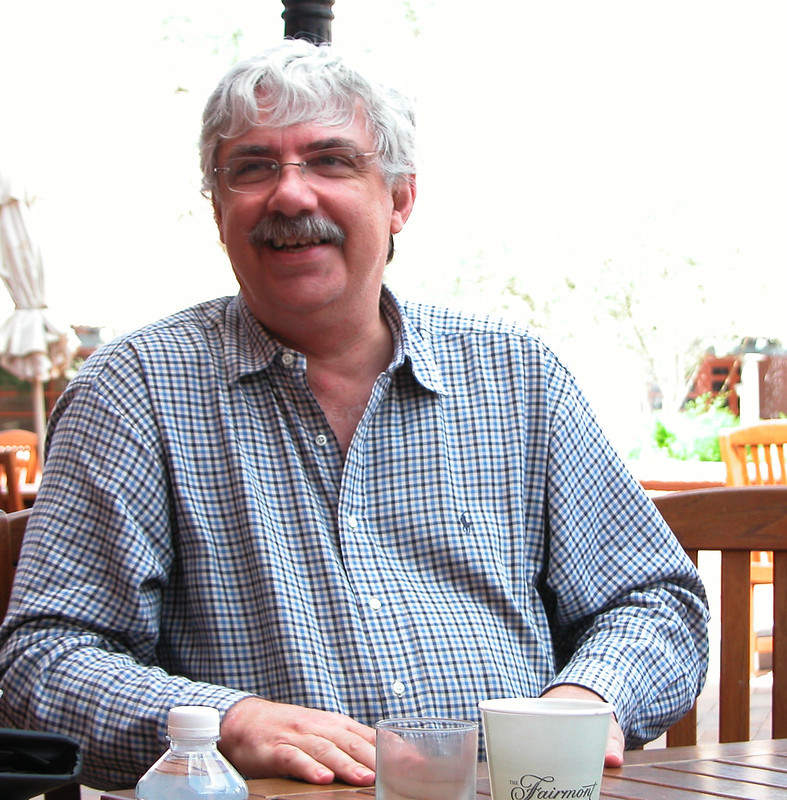This is about credit where due, and unwanted by the credited. I speak here of Kim Cameron, a man whose modesty was immense because it had to be, given the size of his importance to us all.
See, to the degree that identity matters, and disparate systems getting along with each other matters—in both cases for the sakes of each and all—Kim’s original wisdom and guidance matters. And that mattering is only beginning to play out.
But Kim isn’t here to shake his head at what I just said, because (as I reported in my prior post) he passed last week.
While I expect Kim’s thoughts and works to prove out over time, the point I want to make here is that it is possible for an open and generous person in a giant company to use its power for good, and not play the heavy doing it. That’s the example Kim set in the two decades he was the top architect of Microsoft’s approach to digital identity and meta systems (that is, systems that make disparate systems work as if just one).
I first saw him practice these powers at the inaugural meeting of a group that called itself the Identity Gang. That name was given to the group by Steve Gillmor, who hosted a Gillmor Gang podcast (here’s the audio) on the topic of digital identity, on December 31, 2004: New Years Eve. To follow that up, seven of the nine people in that podcast, plus about as many more, gathered during a break at Esther Dyson‘s PC Forum conference in Scottsdale, Arizona, on March 20, 2005. Here is an album of photos I shot of the Gang, sitting around an outside table. (The shot above is one of them.) There was a purpose to the meeting: deciding what we should do next, for all of the very different identity-related projects we were working on—and for all the other possible developments that also needed support.
Kim was the most powerful participant, owing both to his position at Microsoft and for having issued, one by one, Seven Laws of Identity, over the preceding months. Like the Ten Commandments, Kim’s laws are rules which, even if followed poorly, civilize the world.
Kim always insisted that his Laws were not carved on stone tablets and that he was no burning bush, but those laws were, and remain, enormously important. And I doubt that would be so without Kim’s 200-proof Canadian modesty.
The next time the Identity Gang met was in October of that year, in Berkeley. By then the gang had grown to about a hundred people. Organized by Kaliya (IdentityWoman) Young, Phil Windley, and myself (but mostly the other two), the next meeting was branded Internet Identity Workshop (IIW), and it has been held every Fall and Spring since then at the Computer History Museum (and, on three pandemic occasions, online), with hundreds, from all over the world, participating every time.
IIW is an open space workshop, meaning that it consists entirely of breakouts on topics chosen and led by the participants. There are no keynotes, no panels, no vendor booths. Sponsor involvement is limited to food, coffee, free wi-fi, projectors, and other graces that carry no other promotional value. (Thanks to Kim, it has long been a tradition for Microsoft to sponsor an evening at a local restaurant and bar.) Most importantly, the people attending from big companies and startups alike are those with the ability to engineer or guide technical developments that work for everyone and not for just those companies.
I’m biased, but I believe IIW is the most essential and productive conference of any kind, in the world. Conversations and developments of many kinds are moved forward at every one of them. Examples of developments that might not be the same today but for IIW include OAuth, OpenID, personal clouds, picos, SSI, VRM, KERI, and distributed ledgers.
I am also sure that progress made around digital identity would not be the same (or as advanced) without Kim Cameron’s strong and gentle guidance. Hats off to his spirit, his laws, and his example.

Leave a Reply